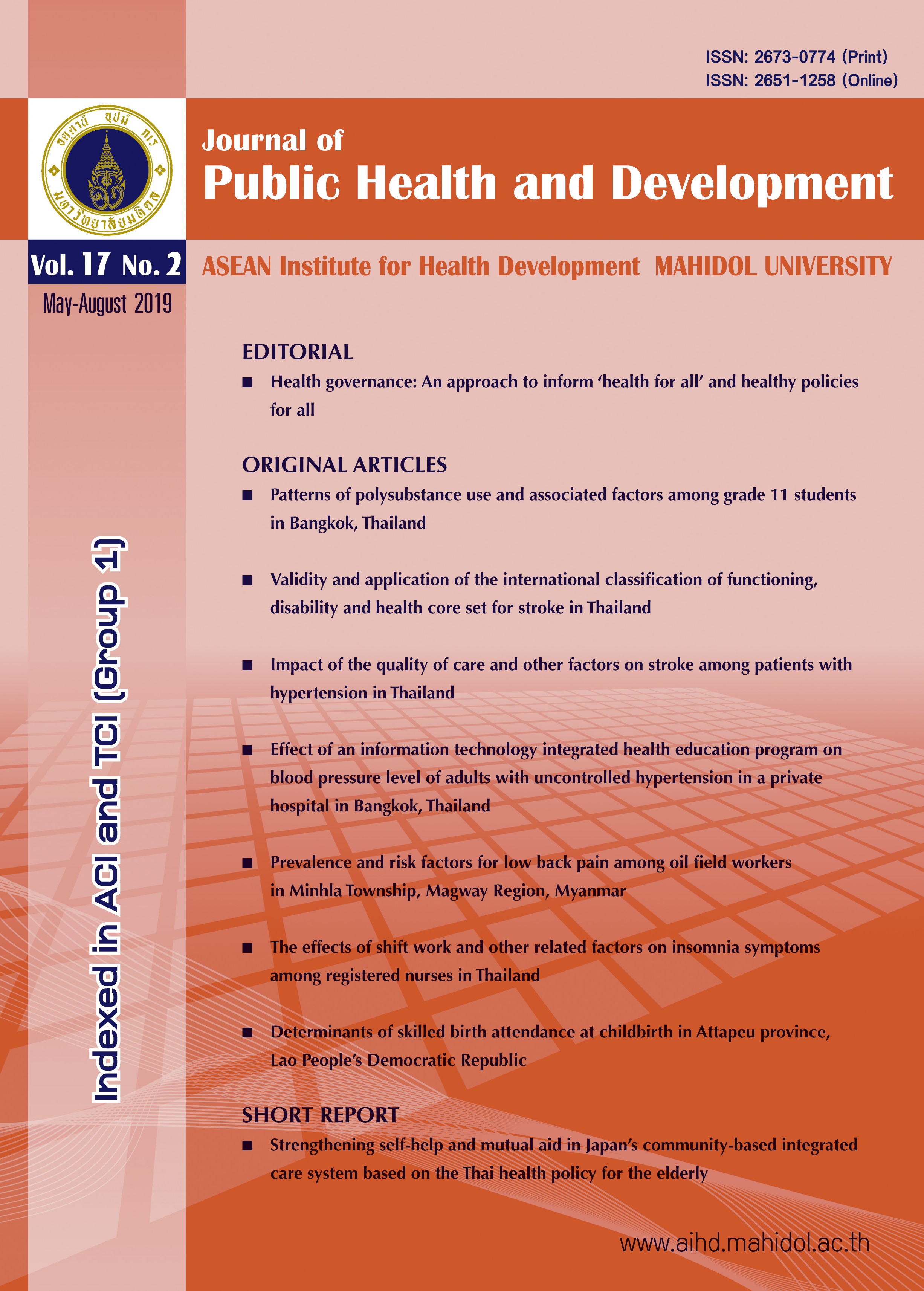Impact of the quality of care and other factors on stroke among patients with hypertension in Thailand
Main Article Content
Abstract
Hypertension is a global pandemic and its prevalence is dramatically increasing in developing countries, including Thailand. Quality care and appropriate care will result in reduction in the incidence of hypertension complications. This study aims to investigate the effects of quality of hypertension care and other factors for stroke among hypertensive patients. The current study is a nationwide, multicenter, cohort study of hypertension outpatients who visited 595 hospitals across Thailand. A generalized linear mixed model with a logit link was employed.
Of the 6,621 hypertension patients who were assessed at least two years between the periods 2011 - 2013 included in our study, 64.2 % were female, and the mean age was 62.4±10.5 years. After adjusting for covariates, the process of care, especially achievement of the fasting plasma glucose examination, leads to a 67 % reduction in the odds of any stroke (adj OR=0.33; 95 % CI=0.12 - 0.88). In terms of other covariates, smoking history and estimated glomerular filtration rate were also strongly associated with any stroke.
Our study demonstrates that fasting plasma glucose examination led to a substantial reduction in the incidence of stroke. Although we could not demonstrate it as statistically significant, patients attending specialist hypertension clinics in our sample had a substantially lower risk of stroke. Hypertension patients should be aware of the importance of treatment and continuity of care.


